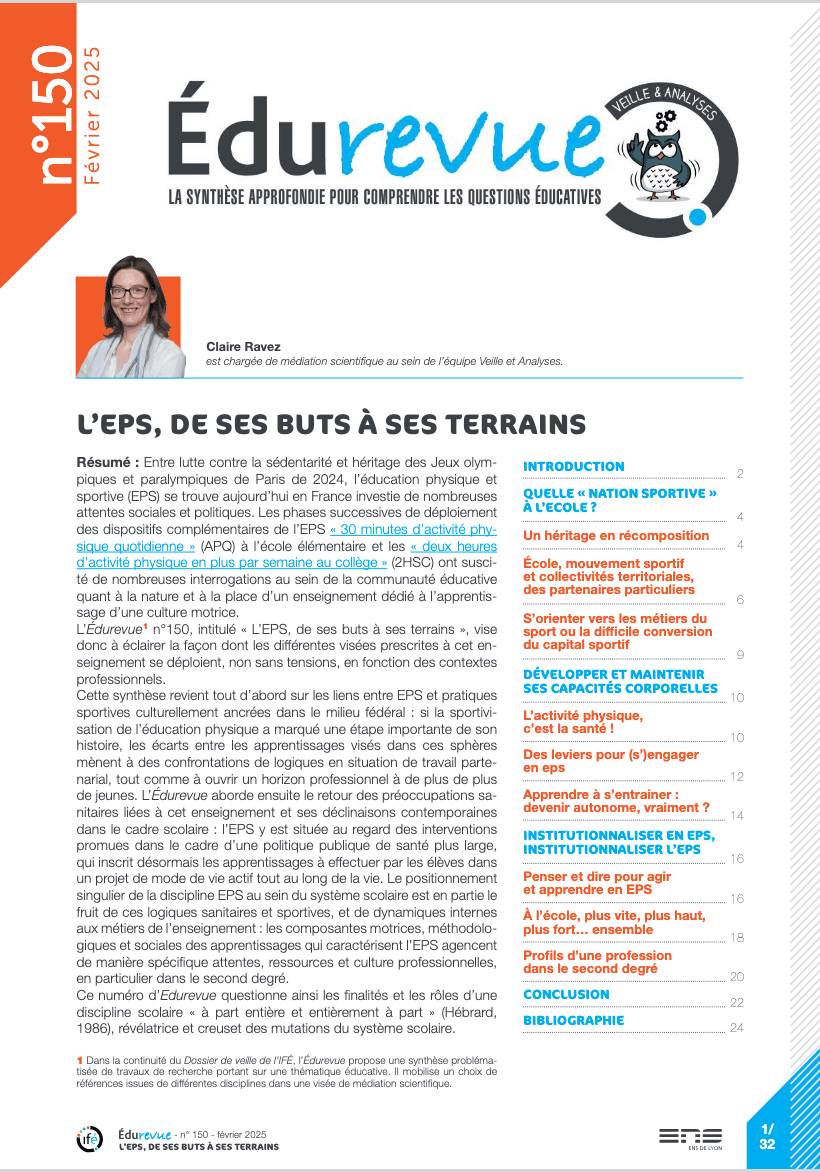Enseigner l'algorithme pour quoi ? Quelles nouvelles questions pour les mathématiques ? Quels apports pour l'apprentissage de la preuve ?
Auteur(s) : MODESTE Simon
Date de soutenance : 2012
Thèse délivrée par : Université Pierre Mendès-France
Section(s) CNU : section 26 : Mathématiques appliquées et applications des mathématiques
Sous la direction de : Sylvain GRAVIER
Jury de thèse : Bloch, Isabelle ; Sopena, Eric ; Castela Corine ; Vuillon, Laurent ; Gravier, Sylvain ; Ouvrier-Buffet, Cécile
« Récemment, l'algorithme a pris une place plus importante dans l'enseignement secondaire en France et à l'étranger. Ce concept, lié à l'informatique mais aussi aux mathématiques et à la preuve, soulève de nombreuses questions didactiques. Cette thèse propose une analyse épistémologique du concept dans le but d'étudier sa transposition et de construire des situations didactiques. Dans un premier temps, nous présentons une analyse épistémologique détaillée du concept en mettant en avant ses aspects fondamentaux. Cela permet de proposer un modèle de conceptions pour l'algorithme du point de vue du savoir savant (en mathématiques et informatique) et tenant compte l'ensemble des formes que peut prendre l'algorithme. Ces résultats, validés expérimentalement par les analyses d'entretiens avec des chercheurs, permettent de mener une étude de la transposition en jeu dans l'enseignement au lycée en France. Au travers de l'étude des instructions officielles, de manuels scolaires et de ressources en ligne, nous mettons en évidence une transposition partielle du concept principalement orientée vers la programmation et l'usage de l'algorithme comme un outil. La dernière partie propose une caractérisation des problèmes fondamentaux pour l'algorithme et des perspectives pour la construction et l'étude de situations didactiques en algorithmique. »
Abstract
Teaching algorithm, what for? Some new questions for mathematics and issues for proof learning.
« Recently, the notion of algorithm has gained in importance in secondary school curricula, in France and abroad. Algorithm is strongly linked with computer science, mathematics and proof and its teaching raises many didactical questions. In this thesis, we propose an epistemological analysis of the algorithm in order to study its transposition and to build didactical situations. To begin with, we introduce a detailed epistemological analysis of the concept, highlighting its fundamental aspects. It leads us to construct a model of conceptions for algorithm regarding the academical knowledge (in mathematics and computer science) and taking into account the different forms an algorithm can take. Those results have been experimentally validated by the analysis of interviews of researchers. This allows us to study the didactical transposition involved in the French high school. Through the study of the official curricula, selected textbooks and online resources, we emphasize a partial transposition of the concept, mainly tool-oriented and based on programming. In the last part, we propose a characterization of fundamental problems for algorithm and perspectives for the design and the study of didactical situations in algorithmics. »
URL : http://tel.archives-ouvertes.fr/tel-00783294
mot(s) clé(s) : didactiques disciplinaires, sciences












